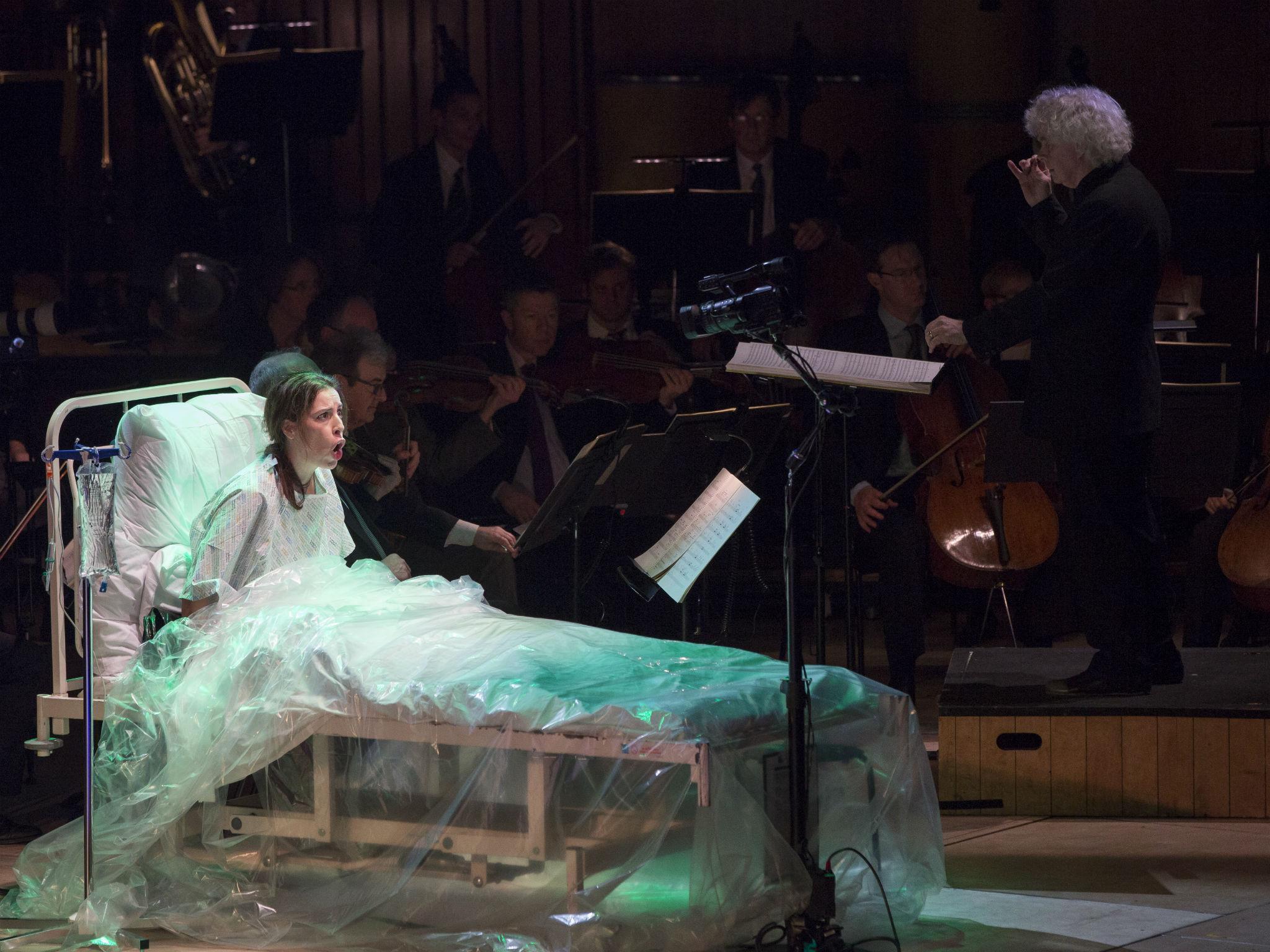Le Grand Macabre, Barbican Hall, London, review: Sellars couldn’t find the work’s throbbing political pulse
Simon Rattle conducts the London Symphony Orchestra in Peter Sellars’s production of Ligeti’s ‘Le Grand Macabre’ set in a land of nymphomaniacs, drunkenness and debauchery

Your support helps us to tell the story
From reproductive rights to climate change to Big Tech, The Independent is on the ground when the story is developing. Whether it's investigating the financials of Elon Musk's pro-Trump PAC or producing our latest documentary, 'The A Word', which shines a light on the American women fighting for reproductive rights, we know how important it is to parse out the facts from the messaging.
At such a critical moment in US history, we need reporters on the ground. Your donation allows us to keep sending journalists to speak to both sides of the story.
The Independent is trusted by Americans across the entire political spectrum. And unlike many other quality news outlets, we choose not to lock Americans out of our reporting and analysis with paywalls. We believe quality journalism should be available to everyone, paid for by those who can afford it.
Your support makes all the difference.A filthy, Rabelaisian romp through a land of nymphomaniacs, dominatrices, drunks and hysterics, scored to the sounds of steamboat whistles, saucepans and an entire chorus of car horns, Ligeti’s “anti-anti-opera” Le Grand Macabre is about as much fun as you can have in the opera house. So why was there so little laughter at this semi-staged performance by Simon Rattle and the LSO?
The answer lies with director Peter Sellars, whose iconic 1997 Salzburg production was reheated here in watered-down form. Transforming an anarchic, apocalyptic fantasy into a cautionary tale about nuclear disaster, Sellars shackles the work’s joy, reins in its obscenity, turning its pointed wit into a blunt teaching tool.
An outstanding ensemble cast (and a very game LSO Chorus) did their best with what they were given; Audrey Luna’s crazed Gepopo soared easily into Ligeti’s musical stratosphere, Ronnita Miller and Elizabeth Watts clung and clutched musically at one another in a sequence of X-rated duets, while Heidi Melton made a memorable and deliciously wanton Mescalina. A percussion-heavy LSO delighted in all of the composer’s outlandish textures and parodic musical borrowings, but tended a little heavy in the balance under the encouragement of Simon Rattle.
There was a time when Le Grand Macabre looked like a musical novelty, a disposable piece of 1970s experimentalism. Forty years on, this absurdist meditation on extremism and pleasure-addicted society, on a world poised on the edge of destruction, looks more timely than ever. What a shame Sellars couldn’t find the work’s throbbing political pulse.
Join our commenting forum
Join thought-provoking conversations, follow other Independent readers and see their replies
Comments